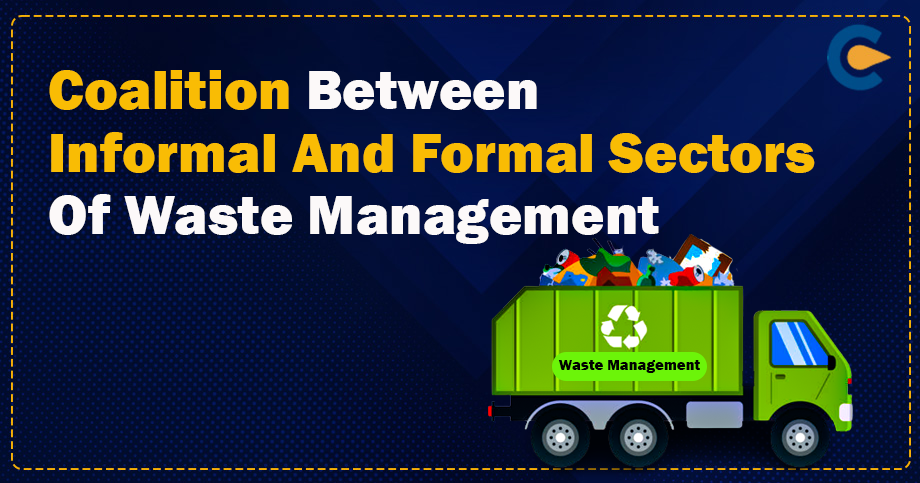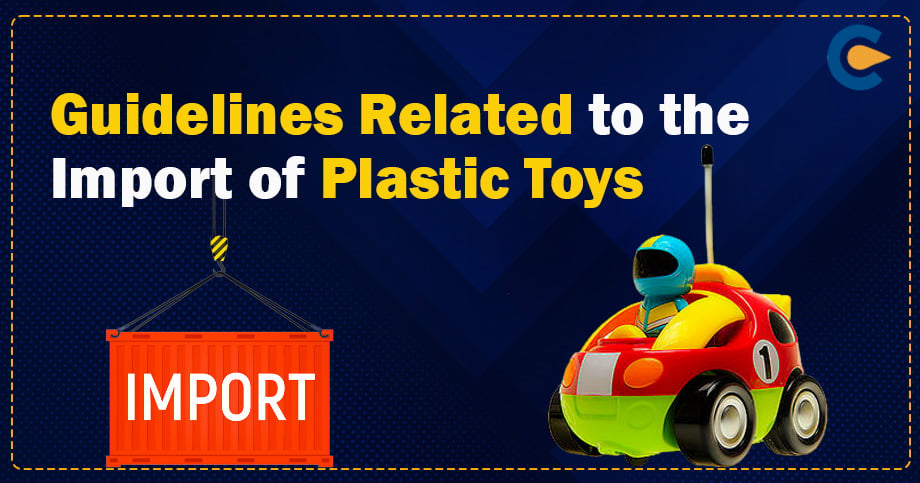The business relating to the collection and managing the waste has been in place for as long as the waste has been accumulating and people have realized its monetary value. But, these “businesses” are mostly informal, which instead of decreasing pollution and improving the environment contribute more towards environmental damage by careless discarding the waste or adopting the method of recycling that produces more toxins. This blog will explore the model of a coalition between informal and Formal Sectors of Waste Management.
Waste Management
Waste is regarded as any this which have surpassed its shelf life and is now not of any use to the consumers, but according to many scientific journals, there is no such waste in the world which can’t be reprocessed or treated scientifically. With the increasing economy of India and purchasing power of people, the accumulation of waste is increasing every day, and with an increase of waste, the market for waste management is also increasing. It is estimated that the Indian waste management market will generate total revenue of 6.9 bil. in 2020, with a CAGR (Compound Annual Growth Rate)[1] of 1.9% between 2016 and 2020. The capacity of industry relating to waste management has increased with a Compound Annual Growth Rate of 0.9% between 2016 and 2020, to reach a total of 287.1 million tons in 2020.
The market for waste management comprises four sectors, namely Industrial Waste, Bio-Medical Waste, Municipal Waste and Electronic Waste.
The process of Waste Management in India is usually followed as follows: –
- Waste generation
- Primary collection
- Storage
- Secondary collection
- Transportation
- Recycling
- Treatment
- Disposal
Key Stakeholder who are involved in Waste Management
Various stakeholders who are involved in Waste Management in India are: –
- Public sector: this includes ULB (urban local bodies) or local governmental authority at the city/district level;
- Private-formal sector: this sector includes large and small listed enterprises partaking in the waste management process, including collection od waste, transport, treatment, disposal and recycling;
- Private-informal sector: this sector includes the small-scale, non-recognized private sector and comprises dump pickers, Kabadiwalas, itinerant-waste traders and non-registered small-scale enterprises; as well as
- Community representatives in the form of NGOs, etc. These stakeholders enter into partnerships for providing various activities
Overview of Informal Sector of Waste Management
The informal sector is defined as small-scale, unregulated, unregistered, labour intensive, and uses low technology manufacturing units. In India informal sector refer to the waste management activities that are performed by scavengers and waste pickers. This type of waste recycling is done by poor and marginalised social groups who opt for this in order to generate income and survive every day. Informal recycling systems can bring significant economic benefits to India. When focusing on the macroeconomic viewpoint, this informal sector is well accustomed to the predominant circumstances, namely ample supply of working force but limited capital as they reduce capital expenses and take full advantage of hand power. The informal sector are able to deliver a steady, dependable supply of complementary raw materials for the particular manufacturing industry, which can substitute more costly ones.
But in spite of the informal sector being beneficial for the economy of the country, it does have a detrimental impact on human health and the overall environment. The risks include occupational health hazard that is faced by the workers due to a lack of regulation overseeing the working conditions and them working in close proximity to toxic and hazardous waste further, the informal sector also affect the overall health of people due to unregulated disposing or recycling practice where the toxins that are released during the process are not managed or handled properly resulting in the damage in the environment and health of people living nearby.
Overview of Formal Sectors of Waste management
The Formal Sectors of Waste Management consist of either public or private enterprises which are legally managed, regulated and licensed to operate in accordance with regulations mandated by the Ministry of Environment, Forest and Climate Change & the Central Pollution Control Board to protect the local and national environment and public health which if compared, the informal sector that as described above as small-scale, labour-intensive, largely unregulated and unregistered, low-technology procedures to separate usable materials from the waste stream. The entrepreneurs or enterprises of the informal sector typically do not pay taxes, have no trading licence, are not included in social welfare or government insurance schemes, and/or are not obliged to handle their non-recyclables in an environmentally suitable manner.
Business Model of Informal and Formal Sectors of Waste Management
In many countries, including India, management till now, especially in the formal sector, has not proven to be very lucrative either to the environment or the GDP of the country. This may be due to a lack of awareness among people or the unreachability of the formal sector. Therefore to eradicate this, many environmentalists and researchers have evolved the model of a coalition between informal and Formal Sectors of Waste Management where manufacturers will also be assisted in fulfilling their EPR responsibility.
As discussed above one of the biggest disadvantages that the formal sector for waste management faces while operating a business is its lack of reachability among people for a general collection of waste. And since the informal sector is more approachable to the general public, the collection of waste becomes more efficient the coalition between the informal and Formal Sectors of Waste Management for waste management will prove very lucrative.
The model of partnership between the informal and formal sector for waste management work in many ways, including the one where the formal sector of waste management employs the informal sector for collection and segregation of waste, with them overseeing the operation so that it is done in an environmentally sustainable way. By this method, the formal sector will fulfil its need for raw materials, and the informal sector will get an organised structure. Apart from this, the workers of the informal sector.
The model can work in many ways, for one of the Formal Sectors of Waste Management uses informal collectors for collecting and segregating the waste with them overseeing the operation so that it is done in an environmentally sustainable way. This will give the informal sector the organised structure that it needs and the formal sector its raw material. On top of this, informal workers usually possess in-depth knowledge about the economic value of different waste components, including their most valuable fractions. Therefore, they understand in which conditions an item needs to be in and the market value of the product. Entering long-term partnerships with informal collectors can, therefore, help avoid the practice of cherry-picking, where recyclers receive only scavenged products of minimal economic value, and they keep the valuable fractions.
At last, by integrating the informal sector into the formal sector Furthermore, recyclers can focus on their strengths of recycling in an environmentally sound and legally compliant way. Higher and more reliable input material flows enable recyclers to invest in appropriate treatment technologies. By aggregating larger quantities of e-waste, the bargaining power towards material buyers on the international secondary raw-material markets increases, while reliable flows of materials improve the cash flow situation for recyclers.
Conclusion
The Coalition between informal and Formal Sectors of Waste Management is a new innovative approach for tackling the gaps present in both sectors as one can easily overcome or address the disadvantages present in the other, formalising an alliance which have the potential of creating new market space and proving lucrative for the growth of Country.
Read our Article:Regulations Governing Biomedical Waste Management Business











